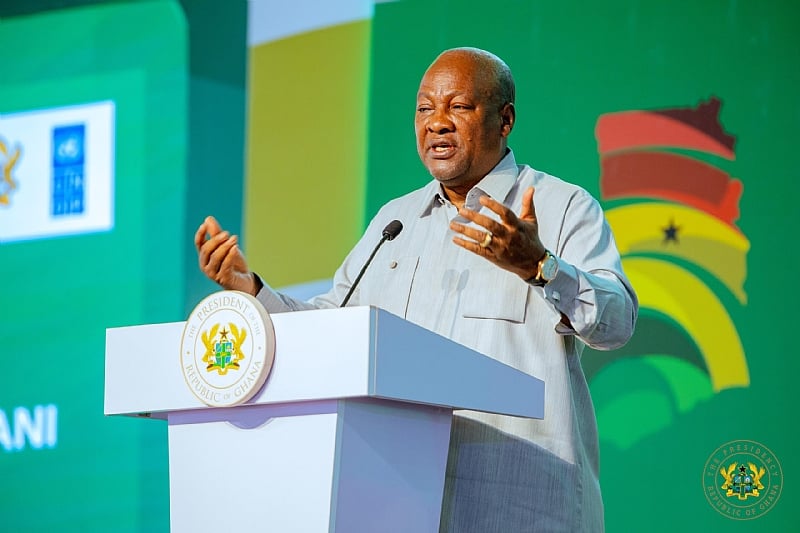Decongesting Accra: A Vision for a New Metropolis
The burgeoning population and economic activities within Accra, Ghana’s capital city, have led to escalating congestion, straining infrastructure and impacting the quality of life for its residents. To address this pressing challenge, President John Dramani Mahama has unveiled an ambitious plan to establish a new city on the Accra plains, strategically spanning across the Greater Accra, Eastern, and Volta regions. This meticulously planned metropolis is envisioned to alleviate pressure on Accra by redistributing government offices and agencies, fostering a more balanced urban development landscape.
The proposed new city is not merely a satellite town but a comprehensive urban center designed with connectivity and sustainability in mind. A dedicated railway link and expressway are planned to seamlessly connect the new city to Accra, ensuring smooth commuting and facilitating economic integration. The location, straddling three regions and extending to the Volta River, offers significant potential for economic diversification, leveraging the river’s resources and creating opportunities for various industries. This strategic move aims to decongest Accra while simultaneously stimulating economic growth and development in the surrounding regions.
Addressing Chieftaincy Disputes and Land Management Issues
Beyond the infrastructural development, President Mahama’s vision acknowledges the importance of social harmony and equitable resource management. Recognizing the detrimental impact of chieftaincy disputes on local development, he called for peaceful resolutions through established traditional structures like the National and Regional Houses of Chiefs. The government’s commitment to supporting fair and neutral mediation processes through the Ministry of Local Government, Chieftaincy and Religious Affairs highlights the importance of fostering collaborative solutions to traditional governance challenges.
Land management, particularly concerning state lands and ancestral Ga-Dangme lands, is another crucial aspect of the President’s agenda. Acknowledging the historical injustices and emotional sensitivities surrounding land ownership, he reiterated a directive halting the sale and processing of all government lands. This decisive action underscores the importance of protecting public resources and addressing the historical grievances of the Ga-Dangme people. Further, the government’s commitment to investigating allegations of land mismanagement through the Operation Recover All Loots (ORAL) Committee demonstrates a resolve to ensure accountability and transparency in land transactions.
Investigating Land Mismanagement and Seeking Equitable Solutions
The alleged irregularities surrounding land acquisitions, often involving politically influential individuals securing prime properties at significantly undervalued prices, necessitates a thorough investigation. The findings of the ORAL Committee report have prompted investigations by the Attorney General, paving the way for a potential Commission of Inquiry to comprehensively examine land allocation practices in Greater Accra. This commission, composed of chiefs, legal experts, historians, and affected community members, would provide a much-needed platform for all stakeholders to contribute to finding a just and sustainable resolution.
The establishment of a new city, coupled with addressing land disputes and investigating alleged land mismanagement, signifies a comprehensive approach to urban development and resource management. By combining infrastructure projects with social and historical considerations, the government aims to achieve balanced development that respects traditional rights while fostering economic growth. The proposed measures demonstrate a commitment to equitable and transparent governance, addressing long-standing grievances and laying the foundation for a more sustainable and inclusive future for the Greater Accra region and beyond. This multi-faceted approach recognizes the interconnectedness of urban planning, social harmony, and responsible resource management, setting the stage for a more prosperous and equitable future.














